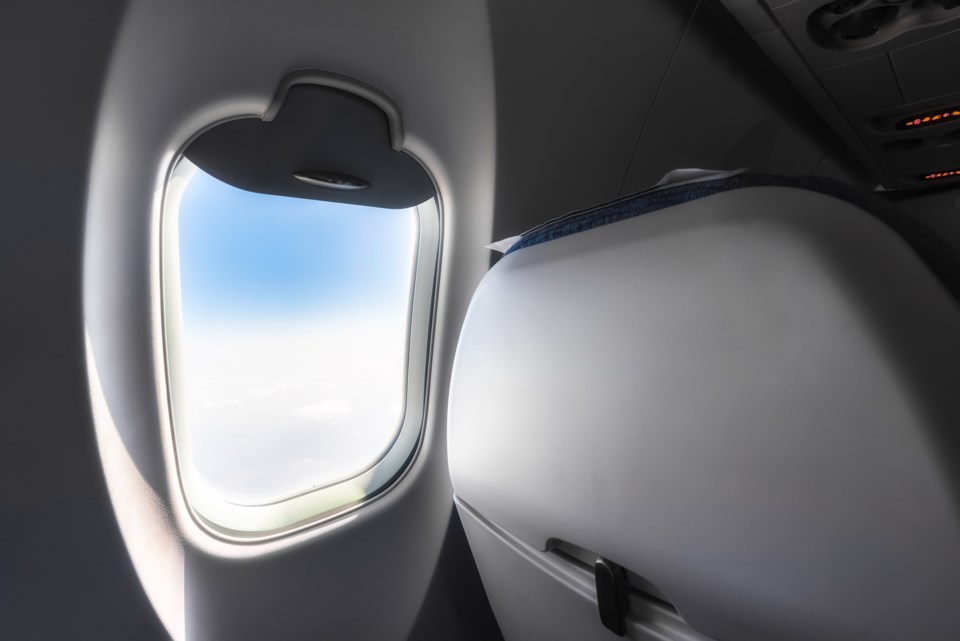B.C.’s Civil Resolution Tribunal has rejected a family of four’s bid get $12,000 in compensation from Air Canada for flight delays.
However, the airline had already paid the family something, according to the .
“I find the applicants are not entitled to anything further, and I dismiss their claims,” tribunal member Micah Carmody wrote.
Julie Fidler, Aaron Fidler and their two children travelled from Sydney, Australia, to Detroit, Michigan via Â鶹´«Ã½Ó³»and Toronto. The return itinerary was supposed to follow the same route in reverse.
Tribunal member Micah Carmody said they each want $3,000 in compensation under the Air Passenger Protection Regulations (APPR) based on $1,000 compensation for each of two outbound flight delays and one inbound flight cancellation.
Air Canada disagreed with the claims for various reasons, although it paid approximately $1,000 to each family member before the parties concluded their submissions in the dispute.
Flight details
The family was originally booked for travel on June 19, 2022 from Sydney to Detroit, with the two Canadian connections.
The first flight was delayed, which would have caused missed connections. So, Air Canada rebooked the applicants on the same route on June 21, 2022.
However, the airline cancelled the Toronto to Detroit flight and Air Canada rebooked the family on a flight the next day that went through Washington, D.C.
Carmody said the family filed a flight disruption claim with Air Canada.
On Nov. 26, 2022, Air Canada advised that the Sydney to Â鶹´«Ã½Ó³»flight was delayed for reasons within Air Canada’s control, so the applicants were entitled to $1,000 each under the APPR, Carmody said.
“Air Canada did not comment on the cancelled final flight from Toronto to Detroit.” the ruling said.
With the payment of $1,000 each on that issue, Carmody said that part of their claims is moot.
However, the family argued that, in addition to the $1,000 each for the initial Sydney to Â鶹´«Ã½Ó³»flight delay, they are entitled to a further $1,000 each for the Toronto to Detroit flight cancellation.
Air Canada says APPR compensation is determined based on arrival time at the final destination rather than the number of flight delays in the itinerary.
Carmody agreed with Air Canada
“The language in the APPR is clear that compensation is based on the original ticket destination arrival delay,” Carmody said. “Revised itineraries as a result of delays or cancellations do not appear to entitle passengers to further compensation in the event of further delays or cancellations.”
The trip home
The applicants were scheduled to return to Sydney on July 19, 2022, following the reverse itinerary of the outbound trip.
However, the first flight from Detroit to Toronto was delayed and Air Canada rebooked the applicants to travel the next day through Los Angeles, California and Brisbane.
Carmody said compensation under the APPR is not payable if the delay or cancellation is beyond the airline’s control, or within the airline’s control but required for safety purposes.
The family said the delay was not required for safety purposes.
Air Canada told the family in its Sept. 12, 2022 response to their request for compensation that their flight was “disrupted due to constraints on ground handling activities beyond the airline’s control.”
However, Air Canada told Carmody the delay was within its control but required for safety purposes.
The airline said the Detroit to Toronto flight was delayed because of the “knock-on effect” of a maintenance issue that arose that morning in the aircraft that was scheduled to fly the family’s route that afternoon.
Carmody noted the APPR said a delay directly attributable to an earlier delay required for safety purposes is also considered to be required for safety purposes if the carrier took all reasonable measures to mitigate the impact of the earlier delay.
The airline backed up the safety claim with maintenance records.
“I accept that this was an unforeseen malfunction that could not reasonably have been identified in routine maintenance,” Carmody said.
“That evidence shows, on balance, that the earlier delay was required for safety purposes and that there were no reasonable measures Air Canada could have taken to mitigate the impact of the earlier delay,” Carmody said in denying that part of the claim.



